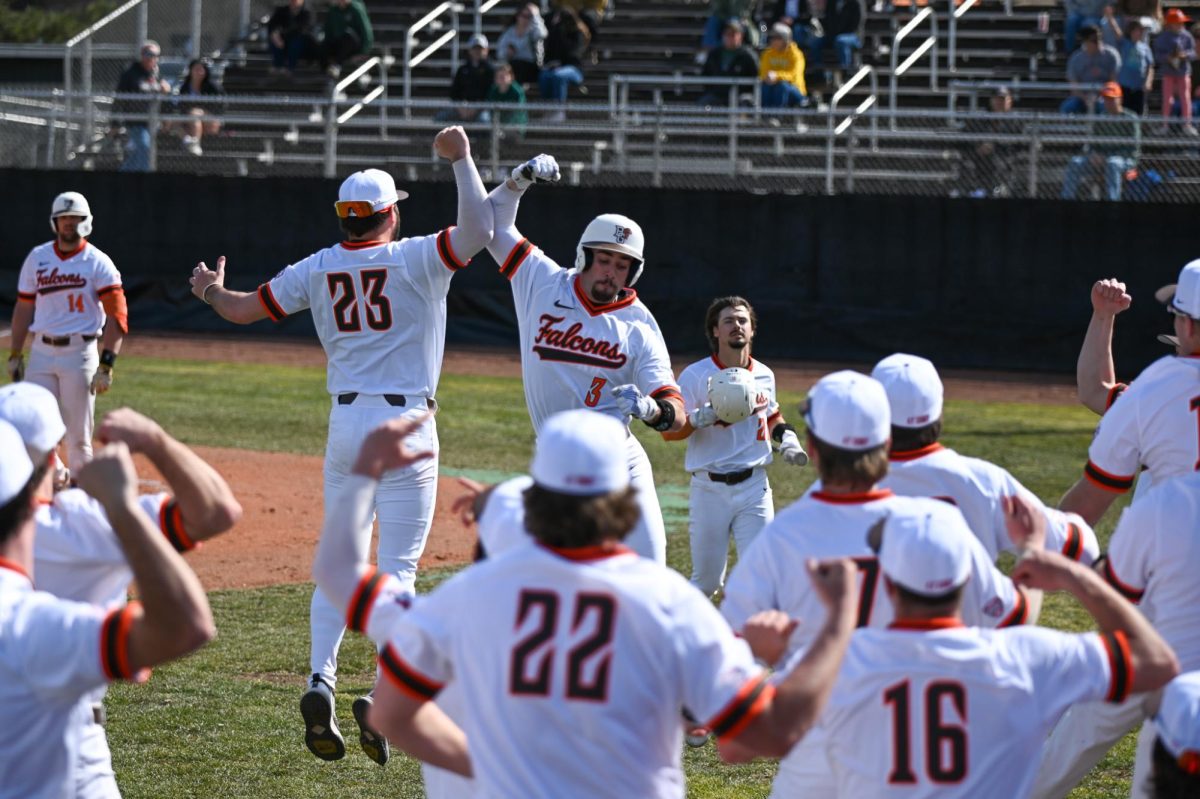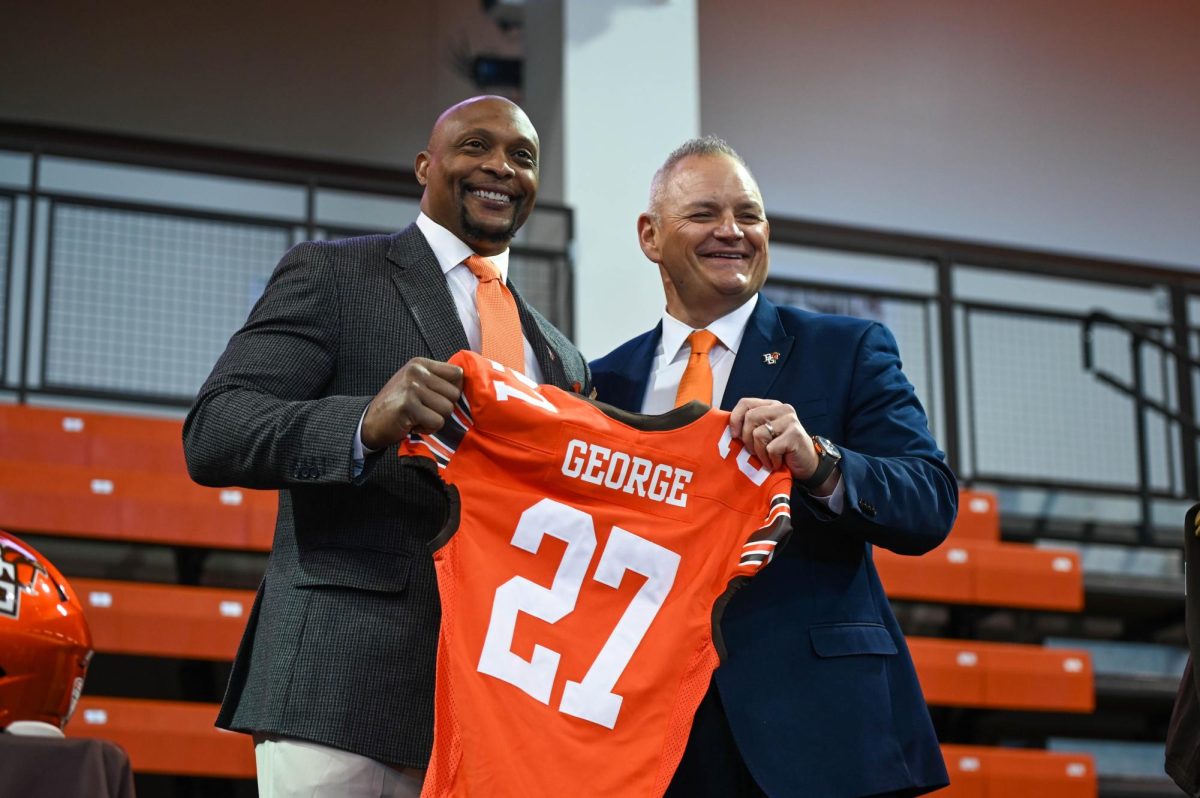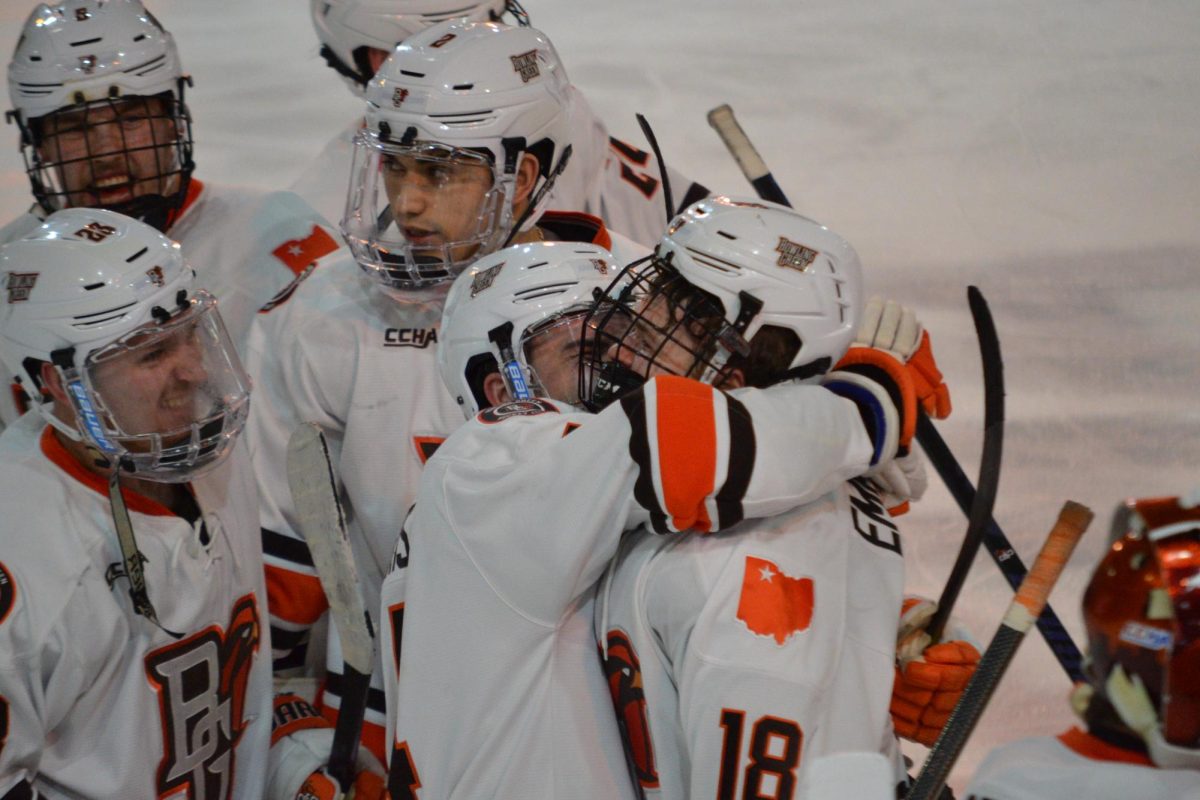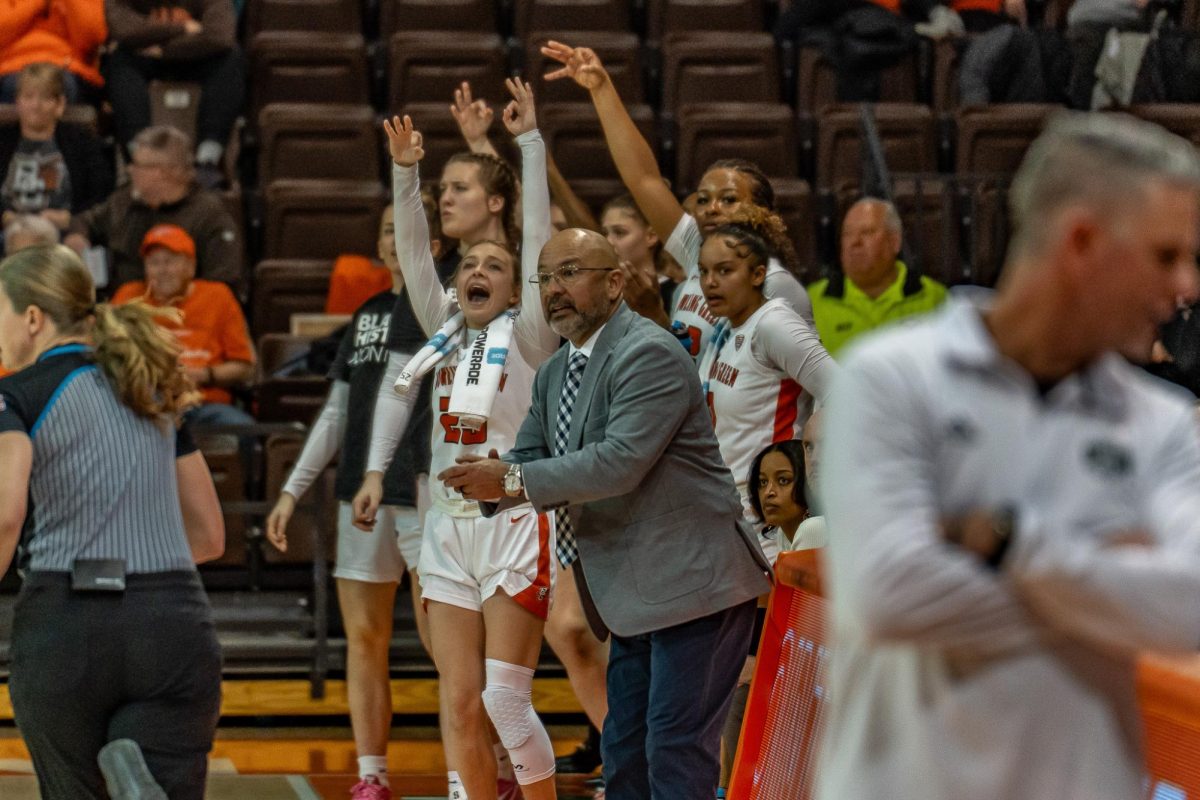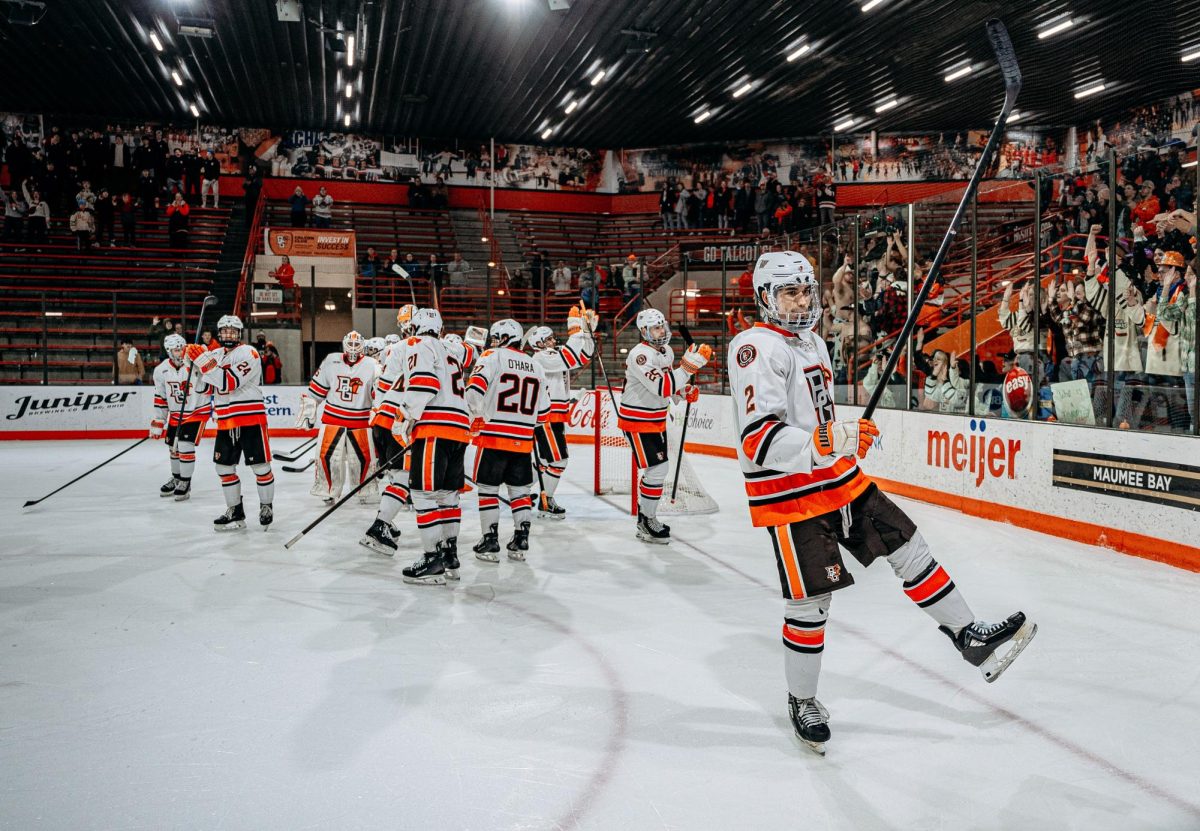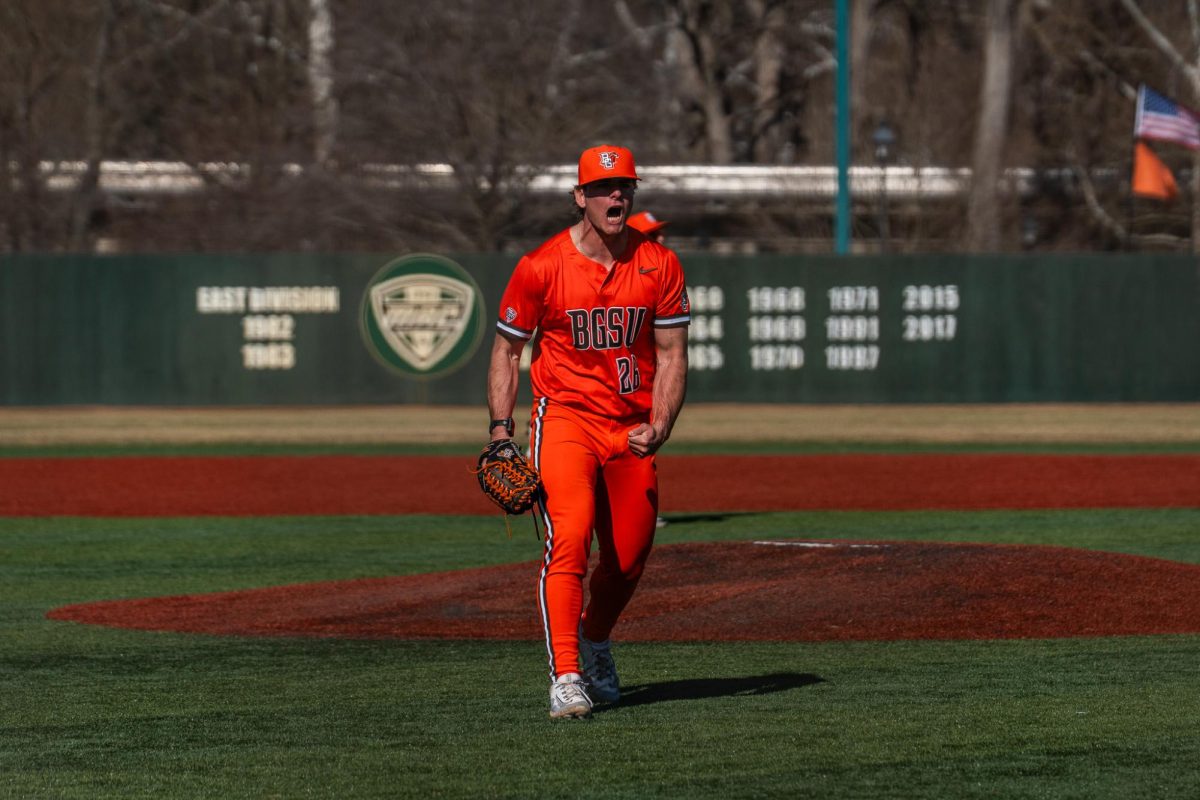An international tennis player can be an asset to a team. They bring a new point of view, a different playing style and a whole lot of experience to their American teammates. All of the tennis teams in the Mid-American Conference have at least one foreign player-except BG. And that’s just the way coach Penny Dean wants to keep it. ‘We are able to recruit good tennis players from the Midwest to the BG campus and not take the easy, non-competitive way out,’ Dean said. ‘It doesn’t mean I would never recruit an international player, but I prefer to go American all the way when possible.’ With the credentials international players can bring in, it may be a surprise that all teams don’t jump on the opportunity. But when you bring in these players, according to Dean, it takes away the opportunity to play from Americans, as well as give teams an unfair advantage. Senior Libby Harrison also feels that recruiting international players is not only unfair on the courts, but financially as well. ‘A lot of American athletes are working really hard to get scholarships, but foreign players are taking them away,’ Harrison said.’ ‘There needs to be a restriction on the number of foreign players, like a percentage of [the team].’ Dean points out that international players can also take away financial aid that could have gone to a local player. ‘I don’t recruit very much internationally because I feel that the grant in aids come from taxpayers money and should predominantly go to Americans,’ Dean said. Though she does not currently have any foreign players on her squad, Dean recruited Gaby Coello, a player from Ecuador, for the 2000-04 seasons. As a high school exchange student living in Cleveland, Coello was able to meet Dean and the team prior to committing to BG. The meeting temporarily swayed Dean’s opinion on international recruiting. ‘One fear I have about recruiting international players is that you in most cases cannot see them play in person or meet them in person to get a sense of what they are really like tennis wise and being a fit for your team,’ Dean said. ‘Sometimes teams get lucky and sometimes they don’t. I had the opportunity to meet [Gaby] and her parents. I knew that her English was good from that meeting, [as well as] what her experiences were.’ Since Coello graduated, the entire Falcon team has been made up of American players. But that hasn’t stopped other MAC schools from going the international route. Miami is home to Monica Gorny, a South African player who played in the 2007 and 2008 Wimbledon and French Open tournaments, and another of their players, a Russian named Anastasia Dracheva, was named MAC Player of the Year in 2008 as a freshman. During the week of April 15, 2009, Akron’s Anna Baronayte-a sophomore from St. Petersburg, Russia-beat out BG’s Katia Babina from Illinois for MAC women’s tennis Player of the Week.’ Also in the running that week was a Buffalo player from Jakarta, Indonesia, and a Miami player from Moscow, Russia. Senior Kelsey Jakupcin says that international players are recruited for a number of reasons. ‘Other teams definitely have a big advantage with having international players,’ Jakupcin said.’ ‘They learn different strategies and have different styles of play which we don’t necessarily focus on in America, and this gives them the edge when playing American players.’ In some other countries, athletes are not required to attend high school, but instead work on developing and improving their skills. This gives them an obvious advantage, but also limits their sense of school spirit that Americans usually learn before college. ‘I think it is more difficult for them to learn to buy into the team concept and the representing your school idea because their countries do not have the same situation in high schools,’ Dean said. Sophomore Christine Chiricosta is proud of the team for being able to compete at such a high level without the aid of international players, but sees why foreign players have such an advantage. ‘[International players] have a different style of play, depending on what country they’re from,’ Chiricosta said. ‘They have usually played on different surfaces, and if you have one good recruit, they’ll attract their friends. Many international players are fighting to get out of their country for whatever reason, so they have a lot more drive to come to a U.S. college.’ Though Dean prefers American players, she admits that the foreign players can often teach their U.S. teammates a thing or two in some cases. ‘I do feel there is a lot to be learned ‘hellip; from the international student athletes in terms of lifestyle, customs, tennis ideas, religion, ideas about life situations,’ Dean said.’ ‘[Learning] to communicate is definitely a positive for a team to gain and could help the world remain at peace.’ Chiricosta and Jakupcin both feel that their team is more close-knit because of the all-American make up. ‘We are all from the Midwest, and we know what the others are going through, Chiricosta said.’ ‘We mostly all played the same area tournaments and can relate to one another. ‘I feel as though our team has become better friends and are more like family without international players,’ Jakupcin said. ‘We can all communicate to the fullest and we really understand and help each other.’ We feel as though we represent the best of Ohio and Illinois and feel proud to be on this BG team.’
Categories:
BG’s tennis team is home grown bunch
April 30, 2009
0
Donate to BG Falcon Media
$845
$2500
Contributed
Our Goal
Your donation will support the student journalists of Bowling Green State University. Your contribution will allow us to purchase equipment and cover our annual website hosting costs.
More to Discover


